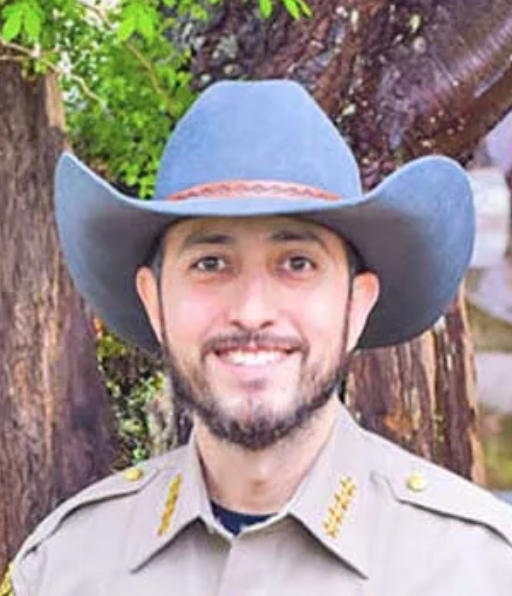Juvenile assault case hits evidence roadblock
Published 6:57 am Monday, August 19, 2024

- Brass knuckles — which can be made of any hard material — are classified as dangerous weapons and are outlawed.
SOUTH BEND — Evidence was suppressed in another big case in the Pacific County Superior Court after another successful challenge by a defense attorney. It is the second major case to have incriminating evidence tossed in the past few weeks.
Trending
Due to the nature of the charges being against a juvenile, the defendant’s name and the names of all parties involved in the case except legal counsel are being withheld.
Alleged attack
The case centers around an alleged assault on April 19 at the Taco Shack located on the 100 block of Sid Snyder Drive in Long Beach. The incident was investigated by the Long Beach Police Department and assisted by the Pacific County Sheriff’s Office.
According to court records, the incident began following an alleged altercation between two teenagers that started with one “running their mouth.” The sister of one of the males, who will be referred to as “15-year-old,” reportedly went to the Taco Shack and attacked multiple people.
“[One child] allegedly confronted [the 15-year-old] at the door, and then [the 15-year-old] went inside the business and started swinging on [another child],” Officer Miranda Estrada states in court records. “[A mother] recorded the fight with her cellphone and provided me with footage.”
“[One mother] observed ‘brass knuckles’ on [the 15-year-old], and that’s when she intervened to get [the 15-year-old] off [her child]. While trying to get [the 15-year-old] outside the building, they ran into [the mother’s] vehicle and dented it,” Estrada added.
‘[One mother] observed ‘brass knuckles’ on [the 15-year-old], and that’s when she intervened to get [the 15-year-old] off [her child]. While trying to get [the 15-year-old] outside the building, they ran into [the mother’s] vehicle and dented it.’
Miranda Estrada, LBPD officer
Estrada recounts that the footage shows what she believes were golden brass knuckles on the hand of the 15-year-old. She also states she found “blood all over the ground inside the building as well as on the door and mats outside the business.”
Alleged victim recounts incident
One of the alleged victims sustained injuries and cuts to their face, and Estrada alleged that she found two subjects holding towels to their bloodied faces when she arrived. None of the alleged victims were transported to the hospital.
According to one of the victims, they were once good friends with the 15-year-old and heard a rumor “around town” that they wanted to fight. The alleged victim claimed that they let the 15-year-old inside the business because they “were once good friends.”
“[The alleged victim] said that [the 15-year-old] just walks in and starts hitting her, and her mom stated, ‘She’s got brass knuckles,’” Estrada states in court records.
In Estrada’s report, she noted that there were multiple witnesses to the attack, including at least one witness who saw brass knuckles.
The 15-year-old was arrested and eventually led investigators to a location where they had reportedly stashed the knuckles — which became a point of contention in a suppression hearing.
At the moment, the 15-year-old is facing charges of second-degree assault, third-degree malicious mischief and unlawful possession of a dangerous weapon. RCW 9.41.250, pertaining to dangerous weapons, states that possession of metal knuckles is a gross misdemeanor.
Rights of a juvenile
The 15-year-old is represented by defense attorney Nathan Needham of Needham Glenn Law, based in Long Beach. Needham has had success suppressing questionable evidence. He filed a Motion to Suppress Evidence on June 6 seeking to bar much of the evidence in the current case.
Needham’s argument centers around RCW 13.40.740, which went into effect on Jan. 1, 2022, and is known as the Youth Right to Counsel. The law mandates that law enforcement provide juveniles access to legal counsel before custodial interrogation if they are detained on probable cause of criminal involvement or before consenting to an evidentiary search.
Under the law, if any evidence is seized without full compliance with the law, it is inadmissible in court unless the juvenile was provided legal counsel and made a cognitive decision, it is for impeachment purposes, or the juvenile made a spontaneous statement.
“Here, [the 15-year-old] was asked only a few questions before being read Miranda rights and directed to the back of the patrol car,” Needham states in his motion filed July 29. “At that point, [the 15-year-old] was in custody. [Their] freedom of movement had been curtailed to the degrees associated with formal arrest, and [they] had just received Miranda rights.”
“Under subsections (a) and (b) of RCW 13.40.740, the arresting officer was required to provide [the 15-year-old] with access to an attorney but failed to do so. [The 15-year-old] then made incriminating statements in response to questioning and led police to incriminating physical evidence. Yet again, such a request to search required access to an attorney, but none was provided,” Needham added.
After the detainment, officers reportedly spoke with the 15-year-old’s mother and informed her that they would be searching for the brass knuckles and obtaining a search warrant for her vehicle if necessary — which then allegedly prompted her to speak with the 15-year-old.
According to court records, the 15-year-old subsequently spoke with officers and told them where they had placed the brass knuckles. Officers reportedly drove the 15-year-old to the location that they had described and were told evidence was behind the location in a bush.
Needham’s motion also referenced case law pertaining to Miranda rights per the landmark Miranda v. Arizona case, which asserts that the term interrogation is broad and encompasses an action that could acquire incriminating information.
“The statute was enacted to prevent the exact scenario that took place in this case,” Needham states in court records. “A vulnerable juvenile, intimidated by police, immediately made incriminating statements.”
“After being placed under arrest and placed in a patrol car, the juvenile then incriminated [themselves] further by leading law enforcement to the exact place where an item of physical evidence could be found,” Needham added.
Other case law included State v. Gaines, which asserts that evidence acquired from an illegal search must be suppressed. Needham also referenced the exclusionary rule, which is meant to stop the use of evidence obtained through a violation of an individual’s constitutional rights.
State’s response
According to court records, Pacific County Deputy Prosecutor Kraig Newman responded to the Motion to Suppress in a one-paragraph response filed on Aug. 9.
“The State concedes that requirements of RCW 13.40.740 are not met. Generally, the statements made during the detention are not admissible, nor is the evidence obtained as a result of it. The State will seek to admit spontaneously (sic) statements and use the statements for the purpose of impeachment allowed by the rule,” Newman states.
“I talked to the prosecutor and was advised on the ruling,” LBPD Chief Flint Wright said. “It’s a tough loss but I understand it. I believe in the system and respect it even when it goes against our cases. Guarding the rights of the accused is fundamental to the criminal justice system and the department does its best to work within that framework at all times.”
Judge’s decision
The decision rested with Judge Donald J. Richter, who presides over the case. He ruled on Aug. 13, throwing out the evidence in response to Needham’s motion.
Moving forward, the prosecutor’s office has a short video from the incident that it can play and will have to rely primarily on witness statements. Witnesses will be able to speak about being struck with brass knuckles if they choose to do so, but the prosecution is barred from bringing the evidence into play.
The case is scheduled for a bench trial, also known as a trial by judge, to begin on Dec. 18, in which Richter will decide on the facts and the applicable law.









